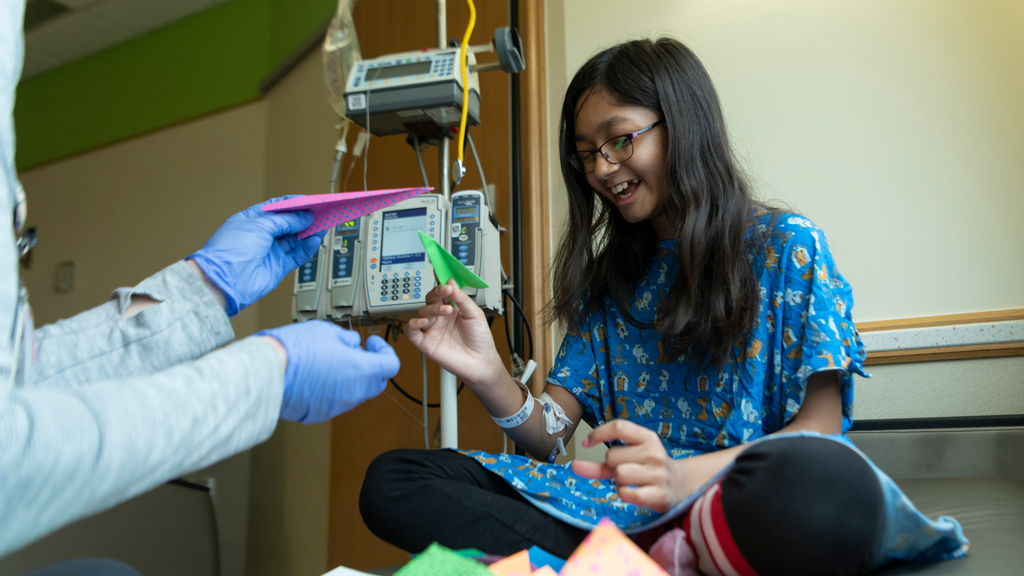Condition
Pediatric Fever of Unknown Origin
A fever is defined by most healthcare providers as a temperature of 100.4°F (38°C) and higher when taken rectally.
The body has several ways to maintain normal body temperature. The organs involved in helping with temperature regulation include the brain, skin, muscle and blood vessels. The body responds to changes in temperature by:
- Increasing or decreasing sweat production
- Moving blood away from, or closer to, the surface of the skin
- Getting rid of, or holding on to, water in the body
- Seeking a cooler or warmer environment
When your child has a fever, the body works the same way to control the temperature. But it has temporarily reset its thermostat at a higher temperature. The temperature increases for a number of reasons:
- Chemicals, called cytokines and mediators, are made in the body in response to an invasion from a microorganism, malignancy, or other intruder.
- The body is making more macrophages. These are cells that go to combat when intruders are present in the body. These cells actually "eat-up" the invading organism.
- The body is busy trying to make natural antibodies, which fight infection. These antibodies will recognize the infection next time it tries to invade.
- Many bacteria are enclosed in an overcoat-like membrane. When this membrane is disrupted or broken, the contents that escape can be toxic to the body. They stimulate the brain to raise the temperature.
Schedule an Appointment
Our pediatric specialists provide personalized care for your child’s physical, mental and emotional health needs. Meet our providers and schedule an appointment today.
Frequently Asked Questions
What conditions can cause a fever in children?
What are the benefits of a fever in a child?
What are the symptoms that my child may have a fever?
When should a fever in a child be treated?
What can I do to decrease my child's fever?
When should I call my child's healthcare provider?
Meet the Providers Who Treat Fever of Unknown Origin
Departments that Treat Fever of Unknown Origin

Infectious Diseases
Our Division of Infectious Diseases is the major referral center for infectious diseases in the Washington, D.C., area, helping thousands of patients each year, and actively promoting prevention through community outreach and education. Learn more about this division.

Help Kids and Make a Difference
Invest in future cures for some of life's most devastating diseases. Give today to help more children grow up stronger.







